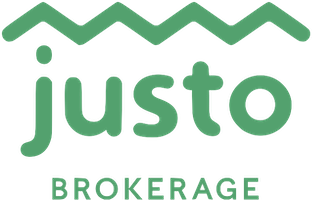
How to invest wisely in Toronto’s real estate?
By the year 2041, Toronto is expected to have almost 2 million more residents. As its population grows, so does opportunities. Real-estate wise, Canada’s largest city has seen a 57% increase in average home prices in the last five years. It also saw a 131% increase in the last decade. Serious would-be investors in Toronto’s real estate market would, therefore, find the following facts and information beneficial.
Related article: Toronto startups look to disrupt Canada’s real estate model
Who can own real estate in Toronto?
- Canadian citizens and even non-residents possess the right to hold, acquire, or dispose of any real estate property. This means an individual, a group of people, and even a corporate entity could own property.
- Non-Canadian investors can partner with local entities or individuals and form a corporation, co-ownership, partnership, or sale-leaseback. Such arrangements are usually based on specific tax limitations and liabilities expected for each arrangement.
- Canadian citizens who own property but have been out of the country for more than six months are considered non-residents. Despite being citizens, they are to be subjected to rules that govern foreigners.
- Non-Canadian citizens who own real estate are not granted special immigration privileges. They can only stay in the country for six months unless they hold a student visa, work visa, or are permanent residents.
Related article: The Ultimate Buyer’s Guide for Buying a House in Toronto
Facts you should know when investing in Toronto’s real estate
- Having a working knowledge of the Investment Canada Act or ICA is a necessity for investors. It details specific information and documents required to be submitted – such as government approval upon establishing a business. The ICA offers extensive information for foreigners with regards to acquiring control of a business. At the federal level, it lists obligations a foreign investor needs to adhere to.
- No restrictions are forced upon non-Canadian citizens, as well as the corporations under their control, with regards to the acquisition of real estate property in Ontario,
- Ontario’s Alien’s Real Property Act gives foreign investors the right to hold or dispose of real estate the same way as citizens.
- Taxation-wise, profits acquired from disposing of real estate in Canada are subject to tax. The same rule applies to non-residents.
- The Canadian Income Tax Act requires non-residents who disposed of real estate property to withhold a share of the property’s purchase price until a tax certificate is issued by the seller. The certificate gives the assurance to authorities that income taxes which the seller owes from the sale will be collected.
- Transferring real estate property requires payment of a land transfer tax. A Municipal Land Transfer Tax and an Ontario Land Transfer Tax are imposed in the province.
- Capital gains tax is imposed on your investment property. The exemption applies if the said property was used as a principal residence.
- Annual Property Tax is to be paid based on your property’s assessed value. For residential properties, this translates to approximately 1% of the property’s amount. 2-3% of the property’s amount is required for commercial properties.
- Other costs to be expected include monthly mortgage payments, property insurance, and property management costs (if applicable).
- Financing can be had from lenders such as the Canadian Imperial Bank of Commerce or CIBC.
- Acquiring insurance coverage is a necessity in order to protect your real estate investment from fire and theft. At times, lenders require that your property be insured prior to giving you financing. The amount of insurance paid is based on the kind of property purchased and its location.
- Your physical presence is required when purchasing real estate as you need to sign various mortgage documents.
- Non-residents go through three steps upon purchasing real estate. The first step is the approval of the mortgage. This process is done according to the regulations of the Financial Transactions and Reports Analysis Centre of Canada. The second step is property identification. Selecting a property is based on your investment goals, among others. The third step is having a meeting with your real estate lawyer, accountant, and property management company.
Related article: 5 Common Mistakes to Avoid for a First Time Home Buyer in Toronto

How to invest wisely in Toronto’s real estate?
- Invest in a real estate property with an appreciating value. Appreciation occurs when a disposed of the property allows you to earn more than the amount you paid for it. If you purchased a home for $600,000 and was able to sell it for $700,000, the extra $100,000 is the house’s appreciation amount. In Toronto alone, the real estate market for condominiums has seen an annual appreciation rate of 4-5%. Houses have an annual appreciation of more than 10%. Expect too that there may be a year or two of zero appreciation or a decline in growth.
- Be knowledgeable about the taxes related to purchasing an investment property such as Land Transfer Taxes, Income Tax on the rental income, and Capital Gains taxes. Land Transfer Taxes are paid by the property buyer and consist of a percentage of the sales price. Capital Gains taxes consist of half of the profit.
- Develop equity. An example of a way to develop equity is by acquiring a property for $600,000. If the said property required a $100,000 downpayment and a renter paid the rest of your mortgage for three decades, the property has developed equity. Eventually, the property is mortgage-free. Once you sell it for $600,000, you have been able to collect $500,000 in equity. Essentially, you were able to get back your $100,000 downpayment.
- Invest in cash flow-positive real estate properties. Cash flow is the result of your rent collection and its difference from the expenses paid out. Investors with such properties break-even on their investment monthly. Factors that affect cash flow include mortgage terms and downpayment.
- Convert the house you purchased into an income property. You can have a part of the house rented out if it is a multi-residential property. You could earn money from the said property via cash returns, equity, and appreciation. However, do expect and prepare for possible repair and maintenance works.
- Purchase a property prior to its construction and sell it once it is completed. Be prepared for potential disadvantages. These possibilities include a real estate project’s cancellation and the low value accorded to condominiums put up for resale.
- Invest in mixed-use properties. These cover both residential and commercial properties. The investment value of mixed-use properties increases if they are located in a growing community. However, the process of purchasing and financing them is different from the traditional resale residential market. Hiring an experienced realtor is advised.
- Flip houses by acquiring one that needs to be renovated for the purpose of selling it. There have been cases where houses originally purchased for $500,000 was renovated for $100,000, and eventually sold for $900,000. Flipping houses is for you if you are prepared to deal with the tediousness of renovations, and the risks associated with it.
- Make quick but quality decisions. The Toronto real estate market is booming, and there is stiff competition among investors. As property prices increase along with demand, it is critical that you invest in decent properties as quickly as you possibly can.
- Consider placing properties up for bidding. Auctions are where buyers and investors attend with the focused intent to actually purchase a property.
- Go beyond competition and look at places in the city that are not saturated with investors. The next real estate hot spot may be an untouched area that might need some creative transformation.
- Keep up to date with relevant real estate laws. Due to the surge of local and foreign investors in Toronto, the government imposed investment property rules to help stabilize the market. Laws reflect changing market environments, thus the need to stay updated with laws related to investment properties. You may want to review mortgage rules and purchase taxes.
- Consider building a multi-unit property. Toronto is home to people who recently moved to the area and are on the lookout for less expensive properties. Many have the tendency to hold off purchasing a house and prefer to rent in units in order to save money. Use this information to your advantage by converting a large house to smaller units. The end result is increased profits due to the number of rental spaces available.
- Find investment partners. Working with investment backers is an effective way to purchase properties without having to deal with complex long-term mortgages. To attract business partners to your cause, highlight the reasons why Toronto is a people-magnet: convenient public transportation, high-quality education with decent tuition rates, trendy restaurants, chic arts and culture area, etc.
- Choose the investment that suits your situation. If you are on the look-out for long term investments, condos might be your investment of choice. It also requires relatively little repair and maintenance work.
- Don’t let your decisions be ruled by emotions. You may have been swooned by a property’s gorgeous granite counters or beautiful bamboo floors. However, determine if they contribute to the month’s rent. Have you considered the condo fees? What is the cost of the taxes? You may want to consider looking at a property from a logical perspective. Doing so could save you from investing in a property that looks nice but does not give good returns.
- Prepare for at least a 20% down payment. Banks will especially require this amount if the property you are to purchase is not something you’ll reside in for a minimum of six months (primary residence).
- Be aware of your debts, income, and credit score as banks use these as the basis on how much mortgage they will lend out. When purchasing an income property, banks usually add 80% of the property’s projected rental earnings. This allows you to qualify for a larger sized mortgage.
- Make necessary property renovations. A renovated property usually becomes a high-value property. Thus, the reason why numerous investors make immediate renovations. A two—unit property could become three. Some intentionally renovate prior to selling. Be aware though of how much money you’re placing in the renovations. At times, a $30,000 renovation project might not give the same investment return.
- Avoid the short-term rental market. Gone are the days of properties being rented out for a brief time period. It is no longer the cash cow as it used to be, no thanks to the rise in popularity of Airbnb units.
- Temper your expectations. Real estate property investments require having goals that extend to the long term. The market is essentially unpredictable. Believing that you can make a profit in a short time period not only leads to feelings of frustration, it is also financially risky.
- Consider income properties. Currently, such houses – which feature self-contained apartments – are in-demand in Toronto. You can rent out your basement apartment for $1,000 and it will still be sufficient to cover your $200,000 mortgage. Homes have also shown to consistently appreciate in a quicker rate compared to condos. Just be prepared for the inevitable renovations, repairs, or irresponsible tenants.
Related article: Pros and Cons of Buying Homes in Downtown Toronto

Conclusion
Investments are intrinsically risky. A real estate investment is no exception. The best way to invest wisely in Toronto’s real estate market is by doing adequate research. Assessing all your options is critical. You can avoid being taken advantage of by illicit loan companies by knowing the risks and benefits of the industry you are entering in. Have sufficient information of the basic real estate process and its accompanying rules. Doing so could help you avoid dealing with companies or lenders with predatory practices.
Know your goals prior to dipping your finances in the real estate market. Real estate investment is not for the faint of heart. How do you plan to invest? Are you going to invest by purchasing a property or by not making any purchases? Do you prefer to be a landlord instead? Do you see yourself receiving calls about bugs under the sink or broken heaters?
If done with the big-picture end in mind, and if you’re willing to do the necessary actions to fulfill your objectives, investing in real estate is lucrative. Are you prepared to compete, lose, be successful, grow, and thrive? Toronto is fast becoming a global contender. It is slowly but surely pushing its way to join the world’s elite cities: Paris, New York, Seoul, Hong Kong, Tokyo, Singapore, London.
Therefore, a real estate investment in Toronto can diversify your current investment portfolio. It could also be a rich source of additional income.
Related article: How to Find the Best Places to Live in Toronto?

Read More
Connect With Us
Connect with our friendly Client Ambassadors and find the best Agent to match your needs
Call us at 1-647-794-0064
Join Our Team |Become a Partner


